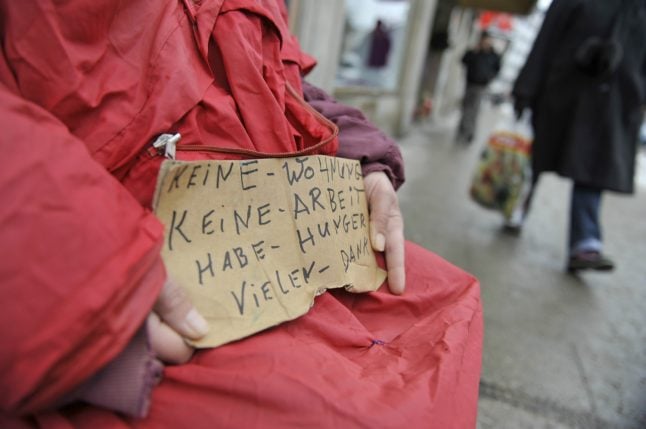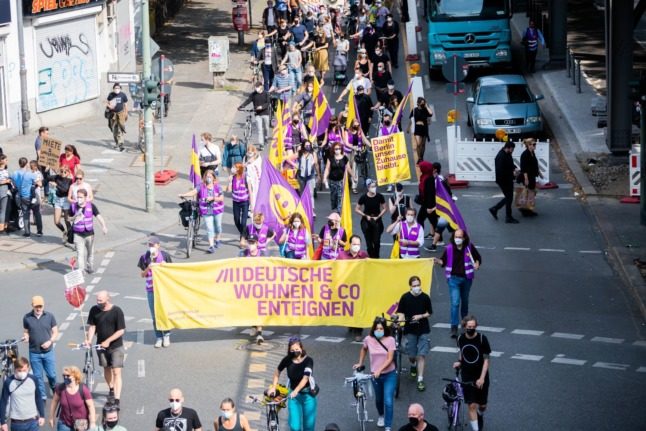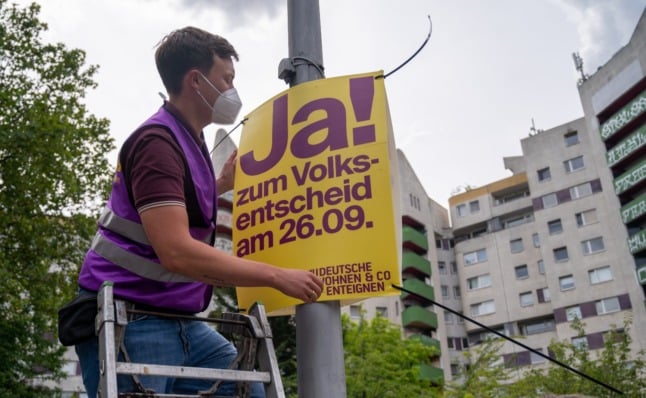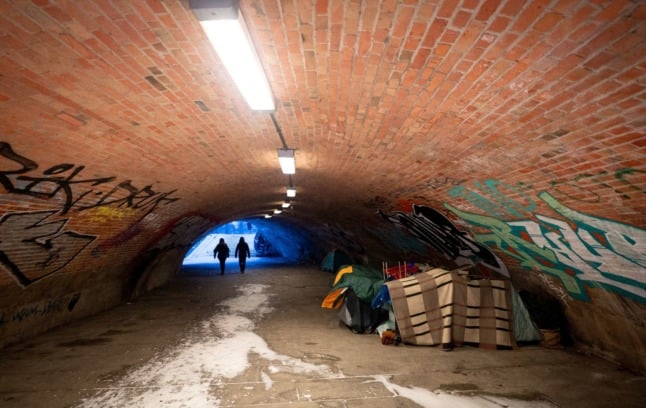That's according to a new estimate by the Federal Association for Assistance to Homeless People (BAGW), reported German media on Monday.
A total of 678,000 people across Germany were homeless in 2018. That figure was 650,000 in 2017.
“Compared to the previous year of 2017, this represents an increase of 4.2 percent in the annual total,” said Werena Rosenke, managing director of BAGW.
According to estimates by the association, the proportion of children and young people is eight percent.
Among those without housing, a total of 41,000 people slept on the streets last year.
READ ALSO: Freezing temperatures pose constant danger to Germany's homeless
Meanwhile, the number of homeless people without a refugee background rose by 1.2 percent, while the number of homeless refugees in Germany went up by 5.9 percent.

Graph prepared for The Local by Statista.
Rosenke said the main reasons for the rising number of homeless people is the lack of affordable housing, the shrinking social housing stock and the continued impact of poverty. Single parents and young adults are particularly vulnerable groups.
People are described as homeless if they have a tenancy agreement. Many of them live in emergency shelters, communal facilities or with friends. Rough sleepers are a category of homeless people.
According to the BAGW, migrants from EU nations in eastern Europe account for most rough sleepers and three out of four people from the homeless population across Germany are men, who are mostly single.
As The Local reported last year, charities and other services step up their support for rough sleepers during the colder months.
U-Bahn stations play a big role. In Berlin, transport operator BVG usually keeps two U-Bahn stations open at night throughout winter, although in the past there have been concerns over security.
Stations also play a big role in Frankfurt am Main, while Bremen focuses on emergency accommodation and filling up vacant hotel rooms.
READ ALSO: U-Bahn stations, containers and hotels: How Germany helps the homeless in winter
Vocabulary
Homelessness – (die) Wohnungslosigkeit
Homeless – Wohnungslos/Obdachlos
Living on the street/sleeping rough – das Leben auf der Straße
Number of homeless people without refugee background – die Zahl der wohnungslosen Menschen ohne Fluchthintergrund
Main reasons – (die) Hauptgründe
Emergency shelter/accommodation – (die) Notunterkunft
We're aiming to help our readers improve their German by translating vocabulary from some of our news stories. Did you find this article useful? Let us know.






 Please whitelist us to continue reading.
Please whitelist us to continue reading.
Member comments